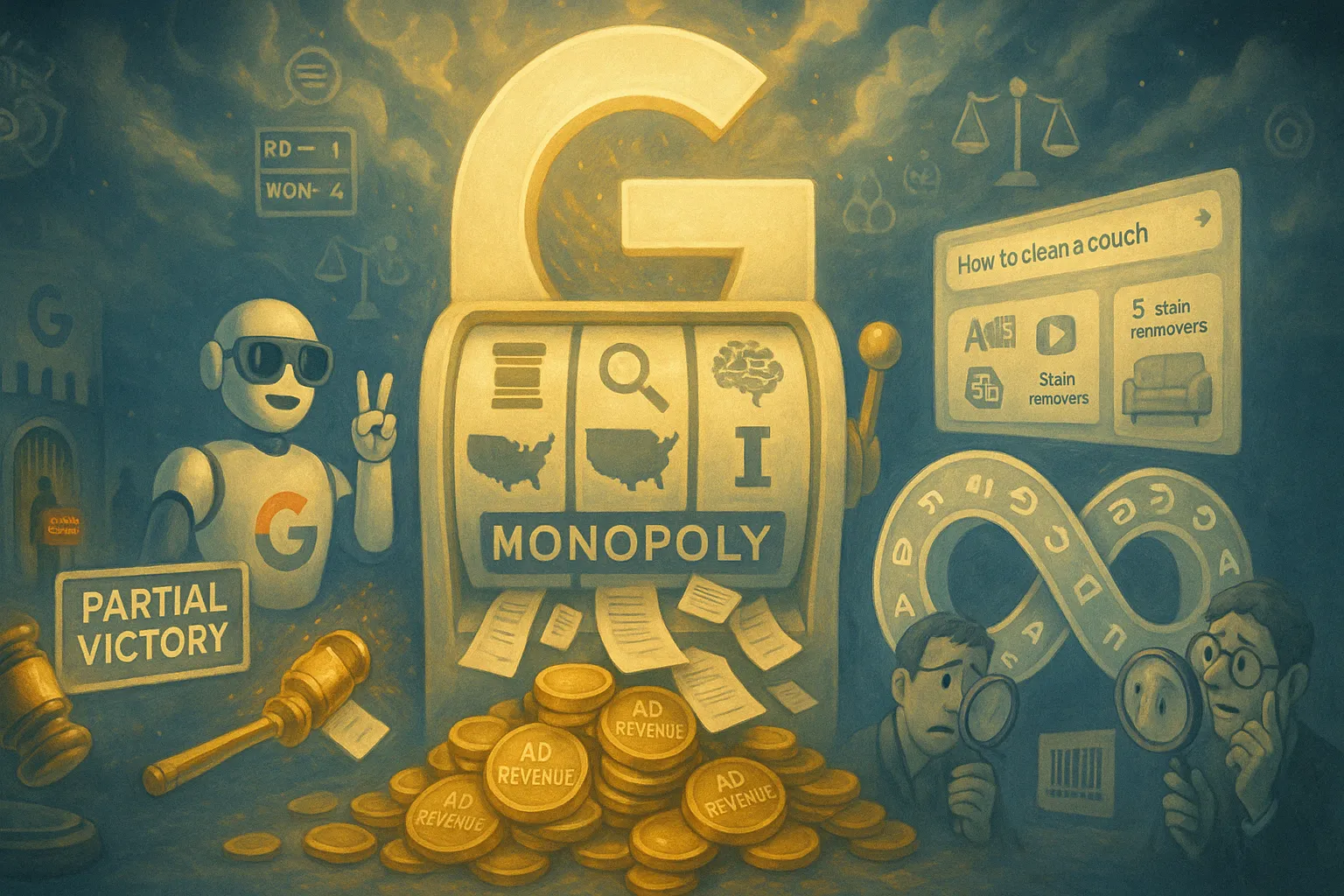They won half the case. It sounds like claiming victory in a soccer match because you only lost by two goals instead of four ;-)
The Department of Justice and 17 US states want Google to sell its network ad business. This unit generates 12% of Alphabet's revenue. Google plans to appeal, particularly disagreeing with decisions about its publishers' tools.
Legal Battle: Half Empty or Half Full?
Meanwhile, Google keeps tightening its grip on search. Their latest move redirects country-specific domains like Google.fr and Google.co.uk to Google.com. While Google insists this change won't affect how search works, it sparked panic in the SEO community. Google's John Mueller had to calm everyone down, explaining that country-specific domains and language tags still matter. It's reminiscent of a parent moving the cookie jar but promising the cookies taste exactly the same.
AI Overviews: A Digital Echo Chamber
The company's recent AI initiatives raise fresh monopoly concerns. Their AI Overviews now dominate search results, creating what amounts to a Google inception – search results linking to more search results. It's like asking for directions and being told to keep asking for directions.
Ad Safety or Power Play?
Google's ad safety measures tell another story of unchecked power. In 2024, they banned or suspended 200% more advertisers than in 2023. While Google credits AI for this efficiency, advertisers complain about wrongful suspensions. When you're the only game in town, getting kicked out of the stadium means game over.
The Quality vs. Quantity Defense
Elizabeth Reid, Google's head of search, recently defended their AI Overviews, claiming they lead to "higher quality" clicks despite reducing overall traffic to websites. Publishers watching their traffic plummet might disagree, but Reid argues these fewer clicks somehow mean more. It's like a diet plan that promises you'll feel fuller by eating less food – technically possible, but highly suspicious without proof.
Reid also revealed plans to monetize these AI summaries with ads above, below, and within them. Their example? Turning a simple search for couch-cleaning advice into a sales pitch for stain removers. Because nothing improves the search experience quite like turning every query into a shopping opportunity.
Google's market power shows in subtle ways too. Recent ranking volatility sparked rumors about tracking tools being blocked, leaving SEO professionals in the dark. When one company controls the digital highway, they decide not just which roads to build but also who gets to measure the traffic.
The company maintains impressive mental flexibility when defining its role. Reid insists Google Search differs from chatbots because it focuses on information – apparently unaware that information is precisely what chatbots handle. Google claims to prioritize factuality over conversation, suggesting you can't have both accurate information and pleasant discourse. This might explain a few awkward meetings at Google HQ.
Looking ahead, Google promises more personalization and hints at possible paid features, though they insist search will stay free. They added a cryptic "never say never" about paid options – words that surely won't keep marketing departments up at night.
Why this matters:
- Google's dominance creates a digital catch-22: they can claim any change benefits users while holding enough market power to make those claims self-fulfilling. When you own the playing field, you can keep moving the goalposts
- The company's ability to simultaneously lose monopoly cases and declare victory reveals a deeper truth: in the current digital landscape, even legal defeats barely dent Google's market control










